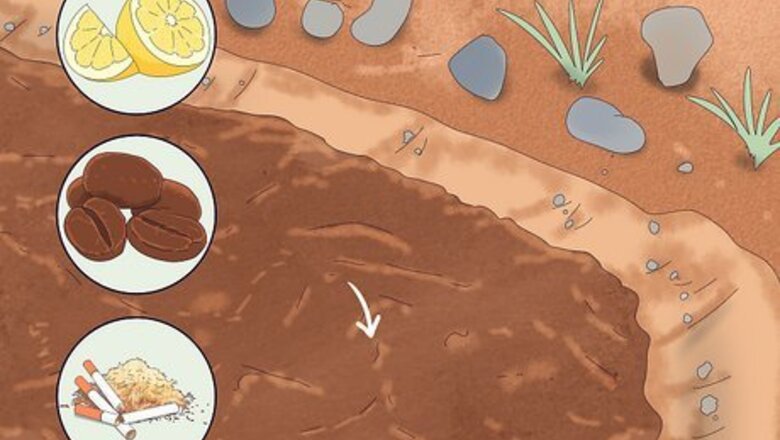
views
- Scatter natural substances that cats hate, such as citrus or coffee grounds, all over your property.
- Block the cats' favorite access points with chicken wire or lattice fencing.
- Install a motion-activated sprinkler to give cats a squirt when they trespass in your yard.
- Create a shelter and litter box for the neighborhood kitties away from the areas where you don't want them.
Sprinkle scented repellents in your garden.
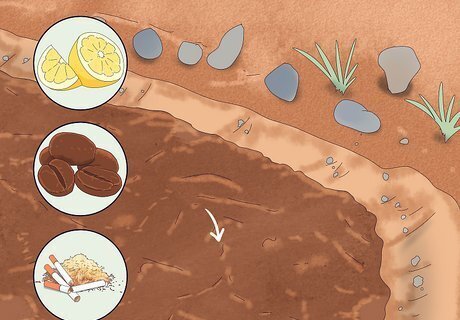
Citrus, coffee grounds, and pipe tobacco keep cats away. Coffee grounds and tobacco also make excellent mulch, so they'll feed your garden while keeping the cats away. You do have to continually refresh these repellents every few days as the scent fades so they'll keep working. Essential oils, such as lemongrass, lavender, citronella, or eucalyptus, are also good scent repellents. If you brew coffee every morning, save your spent grounds so you can scatter them in your garden once a week or so. These smells also work indoors to control your pet cats! For example, wipe counters down with citrus-scented cleaners or spray furniture with lavender-scented fabric freshener.
Plant herbs cats hate in your yard.
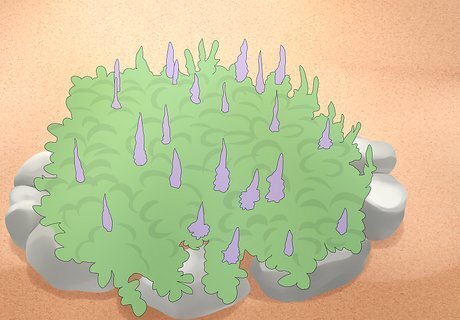
Cats often avoid herbs with strong scents. There are some herbs, in particular, that cats tend to dislike more than others. If you're going to choose only one thing, go with coleus canina. Also known as the "scaredy cat" plant, it is almost universally detested by felines. Here are some others you could try: Lavender Rosemary Pennyroyal Chives Lemon balm
Place lattice fencing over soil.
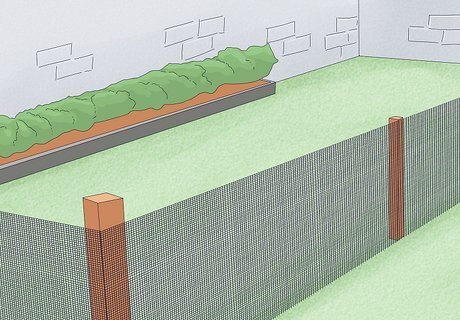
Set lattice or chicken wire into the ground to discourage digging. This is a good solution if you're having problems with cats digging up your veggies. Cats tend to stay away because they're not left with enough room to move their paws to dig. If you're using chicken wire, tuck under the sharp points so the kitties and other critters won't get stabbed.
Cover exposed soil in flowerbeds.
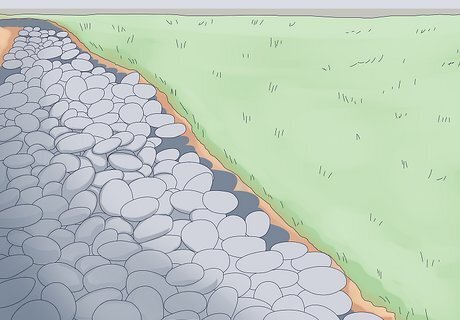
Smooth river rocks look pretty and deter digging. Despite how it looks, the neighborhood kitties haven't declared war on your petunias—they just like to dig in the soft soil. Scatter river rocks over it and they won't be tempted.
Line the garden perimeter with spiky barriers.

Stick chopsticks or disposable forks in the ground 8 in (20 cm) apart. Cats won't be interested in digging in your garden if you place these obstacles around the perimeter. While they could probably just jump over them, they'll likely conclude it isn't worth the effort. If you want a more natural look, gather pinecones or sticks with dull points and use those instead.
Try ultrasonic pet repellents around your yard.
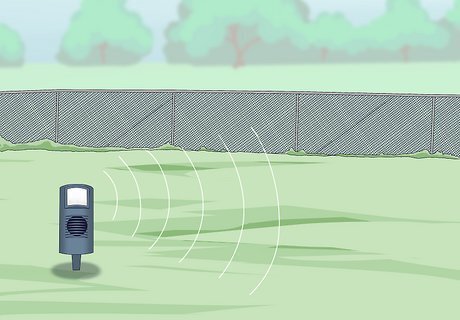
Cats won't stick around with an ultrasonic cat deterrent blasting. Stake these devices into the ground or attach them to a building, and they emit an alarm when they sense motion. People can't hear the sound, but cats can, and they hate it! They'll typically just go somewhere else to get away from it, but if they do end up in your yard, they don't tend to hang out for very long because the sound is just so annoying. Cats get used to the sound after a while, so you'll have more success if you change the location frequently or combine the device with other repellents.
Install a motion-activated sprinkler system.
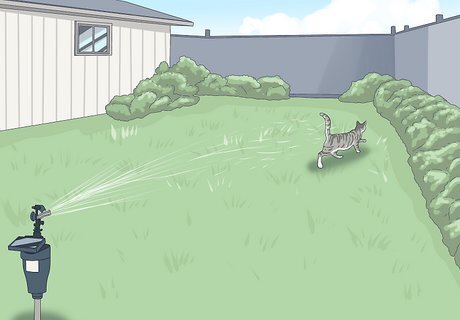
Cats will avoid your yard if they get wet every time they enter. When a cat steps into the zone of the motion-activated sprinkler, they trigger a short burst of water, which will cause them to run for cover. They'll probably try from a few different angles, but they'll give up if they can't get into your yard without getting squirted. These sprinkler systems work because the cat's movement sets them off every time. Trying to go after them yourself with a spray bottle or a water gun isn't as effective—you simply teach the cats not to come around when you're there.
String a wire across the top of your fence.

A taut wire keeps a cat from balancing there. Set the wire 3 to 5 in (7.6 to 12.7 cm) above the top of your fence. If an agile cat wants to get into your yard by scrambling over the fence, they'll be unable to find purchase at the top. Plastic roll-up fencing or tubes on top of the fence will do the same thing, although they don't look as neat and attractive as a simple wire, which is barely noticeable.
Seal openings in fences with chicken wire.

Find and cover holes or gaps in the fence to keep cats out. Cats don't understand fences and boundaries—if they see a place they can get through, they're going to go for it. Put up chicken wire or lattice fencing to close up any holes or natural gaps in your fence and the neighborhood kitties will walk right by.
Remove sources of food.

Secure your trash can lids and clean up spilled food promptly. You might not find food scraps very appetizing, but for feral felines, this is fine dining! It also attracts other pests, so keep your trash can lids tightly closed and locked down. If you feed your own pets outside, only do this at designated times. If you just leave the food sitting out, the neighborhood kitties will treat it like a free buffet.
Set up a spot for the cats out of the way.
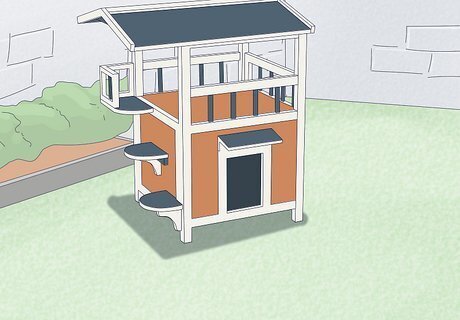
Give them an attractive shelter near the edge of your property. This might sound a little like "if you can't beat 'em, join 'em," but there's strong logic to it. The neighborhood cats are coming on your property looking for food, shelter, and a place to do their business. If you give them those things, they'll use what you've given them—and stay out of your yard and garden. Plant catnip nearby to entice them to that area and they'll leave the rest of your yard alone. Turn over some soil and spread sand to create an outdoor litter box. If you feed the cats, do it near the shelter on a regular schedule. They'll become accustomed to going there for food and won't go searching around your yard for it. Cats already made a litter box on your property? Soak the area in white vinegar to get rid of the smell so they'll stop coming back.



















Comments
0 comment